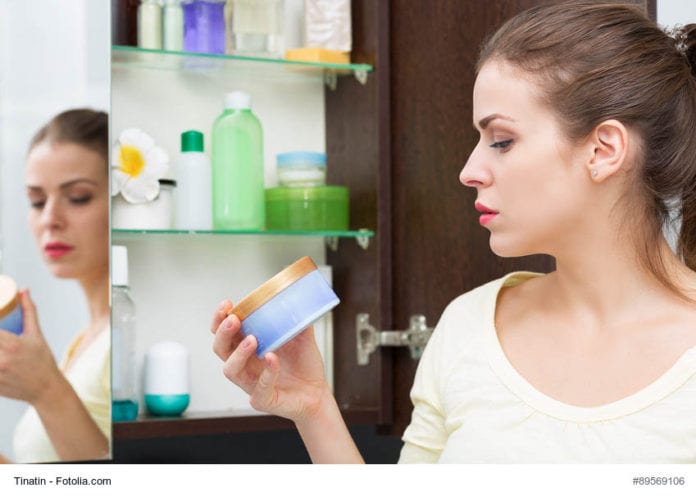When buying make-up or skin care products, do you find yourself turning the bottle or box around to check out the ingredients? Well, you're not alone. According to a recent poll, nearly 60% of American women read beauty product labels to check for harmful ingredients.
With the movement toward better consumer health in full stride, what is now commonplace in the grocery aisle has found its way to the beauty aisle: scanning labels for harmful ingredients. In the "Green Beauty Barometer" survey results released by Kari Gran (and conducted online on their behalf in June among over 1,000 U.S. women aged 18+), nearly six in ten U.S. adult women (59%) read beauty product ingredient labels prior to purchase, while nearly 40% intend to increase their spend for all-natural beauty products.
"For the last several years shoppers have become more conscious about what they put in their body through food consumption, and that's spilled over to a greater awareness for what they put on their body," commented Lisa Strain, co-founder of the Kari Gran eco-luxe skin care and makeup brand. "We started the Kari Gran brand with an intent to fill a niche – but really, it's no longer a niche. This is mainstream. This is where beauty is going. Consumers are more aware and cautious as ever about chemical ingredients, and it's not going to be business as usual for the category."
The American beauty industry is famous for flying under the radar, as it is currently unregulated by the Food and Drug Administration, despite the commonplace use of potentially harmful chemicals and substances, such as parabens, widely banned in other developed countries. However, survey results show consumers are demonstrating action themselves when it comes to a desire for clean and safe beauty products.
Survey Highlights:
- When asked to identify which ingredients they look for on beauty labels that would deter purchase, the most watched for ingredient was sulfates. Nearly three in ten women (29%) seek to avoid sulfates, followed by parabens (22%), synthetic fragrances (18%), PEG compounds (15%) and mineral oil (11%).
- When it came to age, 65% of women ages 35-54 claim they read beauty product labels, followed by 63% of women 18-34, 59% of women aged 45-54, 55% of women aged 65-plus, and 52% of women aged 55-64.
- Regarding future habits, 39% of women claim they will buy more all-natural beauty products in the next two years than they currently do. The intent to "only purchase" or "purchase more" all-natural products ranked highest for the skin care beauty category (39%), followed by nail care products (33%), fragrance (31%), makeup (20%) and hair care products (18%).
- Millennials (women aged 18-34) are the most likely to spend more on all-natural beauty products in the next two years, with half of them claiming they will. This is compared to 44% of women aged 35-44, 34% of women aged 55-64, 31% of women aged 45-54 and 30% of women aged 65-plus.
- When asked how important it was to purchase all-natural products among particular beauty categories, skin care came out on top, with 54% of women claiming it is important their skin care product purchases are all natural. This was followed by all-natural hair care at 49%, makeup at 40%, fragrance at 31% and nail care products at 26%.
- Nearly one in four women (24%) noted it was "very important" their skin care product purchases are all natural, while some one in three (30%) ranked it "somewhat important." Among those who deemed it important, Millennials led the charge at 63%, followed by women aged 35-44 at 58%. Geographically, 62% of women in the Western U.S. claimed it was important, followed by 54% of those in the South, 51% of those in the Northeast and 48% in the Midwest.
- When it comes to beauty product retailers, women are most disappointed in the volume of natural beauty products found in department stores. Of those who purchase beauty products in department stores, 17% say they are "not very" or "not at all" satisfied by the volume of natural beauty products found there. This is compared to 14% of beauty product shoppers in specialty drug and grocery stores, 13% in mass market drugstores and 8% of shoppers in specialty cosmetic retailers.
"People need to realize that whatever beauty products they put on their skin are ultimately soaking in to their bloodstream, so it's incredibly important to be aware of the ingredients," commented Kari Gran, the namesake for the Kari Gran brand who created the line following a medical condition that made her question her beauty product regime and forced her to action to create safer, yet still luxurious beauty products for other women. "It's refreshing to see retailers continue to gain interest in all-natural products due to consumer demand – the education and awareness is getting out there."


